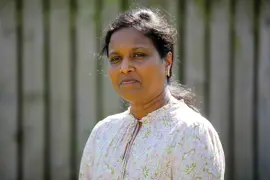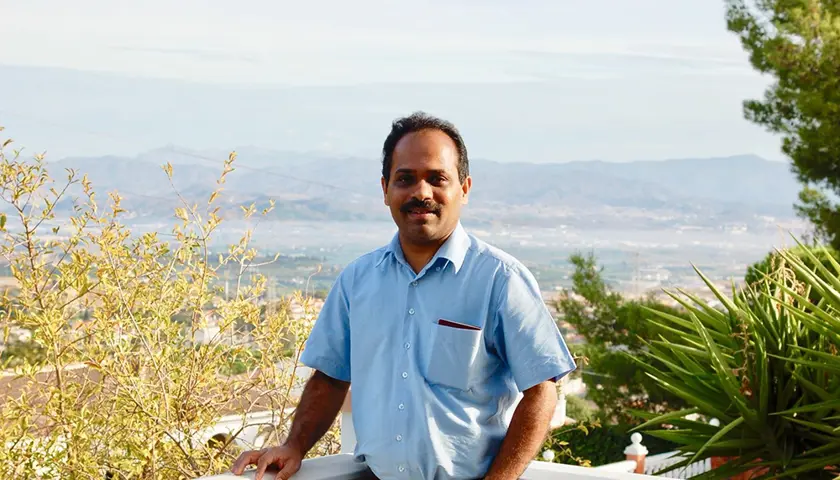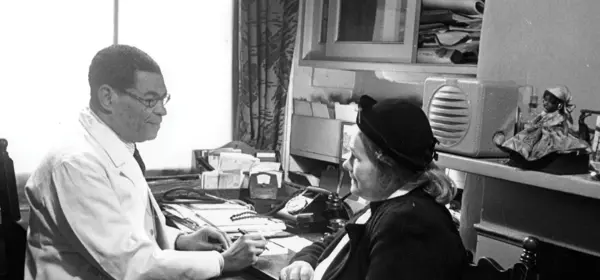
The fight goes on: better support for doctors under investigation
With BMA support, the widow of a doctor who took his own life while under GMC investigation has accepted a settlement from his former employer. Her focus is now to hold the regulator to account
‘It is exhausting – absolutely exhausting. But I would like to see some long-lasting change – some change that will have a real impact on the protection of doctors. That would be the satisfaction for me.
This is a journey and we are only at the first steps.’ Viji Suresh has been campaigning for more compassionate regulation of doctors and a health system which values the wellbeing of staff for more than four years. And she isn’t giving up any time soon. This campaign was borne out of personal tragedy.
On 2 May 2018, Mrs Suresh’s husband, Sridharan Suresh, took his life after receiving a letter from the GMC informing him it had opened an investigation and he would have to appear before an interim orders tribunal. Dr Suresh was ‘blindsided’ by the notification. Just hours later he sent an email to his wife saying he had done nothing wrong but could go on no longer.
Too many doctors have lost their lives – it is time the profession demands change.
Mrs Suresh
Dr Suresh, a consultant anaesthetist at North Tees and Hartlepool Hospitals NHS Foundation Trust, had been under police investigation at the time following allegations of sexual touching made by a teenage patient undergoing sedation for dental extraction – although an inquest into his death in 2020 heard that the drugs used to sedate the patient are ‘well-known’ to produce hallucinations and heightened sexual feelings, the description the victim gave did not match Dr Suresh’s appearance and the police later closed the case with ‘insufficient evidence’.
Dr Suresh had been told by his trust he would not be referred to the GMC, but the police made a third-party referral and the trust did not inform Dr Suresh, despite knowing the action had been taken.
Mrs Suresh has been fighting for recompense and widescale action from Dr Suresh’s trust and regulator, the GMC, since his death. The BMA has supported Mrs Suresh’s legal cases against the GMC and the trust to help drive system change in how doctors are dealt with when under investigation.
BMA council chair Phil Banfield says: ‘We are proud to support this case. It must not take more tragedies to force those who hold sway over doctors’ lives into action. We need better systems and processes to protect the wellbeing of doctors and we need them urgently.’
Hold to account
Mrs Suresh has now accepted the trust’s offer of an undisclosed settlement and says that, while no amount of money can compensate for the loss her family has suffered, she intends to focus efforts on holding the GMC to account.
She says: ‘They have always accepted that they made mistakes. This life cannot be valued with money. But for the sake of the profession and our campaign we had to accept and progress to move to the next stage – especially to see the GMC take accountability.’ GMC investigations are feared among doctors.
Each year there are thousands of fitness-to-practise enquiries, the majority sent by members of the public. While the large majority are closed during ‘initial triage’ stages, even those cases which do not last the distance can have a huge effect on the health and wellbeing of doctors.
Mrs Suresh says: ‘The GMC investigations make the doctors feel marginalised, under suspicion and excluded from their own fellow professionals – there is an extensive sense of isolation when a doctor goes through professional distress.’
Mrs Suresh’s medico-legal adviser Rajendra Chaudhary adds: ‘The GMC has the power to take everything away from doctors… Doctors have worked so hard, for all their lives, to build that professional life and when it is under threat that feeds despair.
The GMC knows this. It has been told this by the experts it appointed to look into these issues.’ The GMC has commissioned investigations around the links between doctor suicide and FTP investigations, with an independent review carried out in 2014 by Sarndrah Horsfall and a later GMC review led by Professor Louis Appleby.
In correspondence with the BMA the GMC has admitted its processes carry ‘real and immediate risk to life for any doctor’ and pledged to continue to ‘improve the way we handle FTP cases’. The BMA and Mrs Suresh believe the GMC must take greater accountability and work to address these problems, however.
Demand for change
Last month, Mrs Suresh and supporters organised an event in Middlesbrough which saw esteemed experts and medical professionals come together to call for action in this area. The conference was chaired by former BMA council chair Chaand Nagpaul and included the screening of a documentary made about Dr Suresh’s story.
Opening the event, Dr Nagpaul said: ‘It should be a never event that any doctor should be put into that position of taking their own life.’ Mrs Suresh, supported by the BMA, is committed to continuing the legal action against the GMC but is also calling on doctors to unite over their treatment by the healthcare system and regulator – urging the profession to come together ‘with steel, determination and an anger for change’.
Mrs Suresh and colleagues have drawn up a charter of rights for doctors which they believe should be adopted across the board. The charter suggests no doctor’s life should be lost because of GMC processes, no doctor should be subjected to unfair and inappropriate FTP investigation and no doctor should suffer discrimination at the hands of the GMC.
To accompany the charter, a survey has been put together asking for doctors’ views on issues behind each aspect of the charter, including asking doctors whether there should be an independent scrutinising body checking the appropriateness of each GMC referral, whether all referrals should be anonymised, whether there should be laws on timelines of GMC investigations and compensatory measures for breaches and whether the GMC should have the power to carry out separate investigations where doctors have been found not guilty in the courts.
Mrs Suresh says: ‘Too many doctors have lost their lives – it is time the profession demands change. The profession should demand protection of their health and respect for their wellbeing.’
Photo credit: Adrian Don




